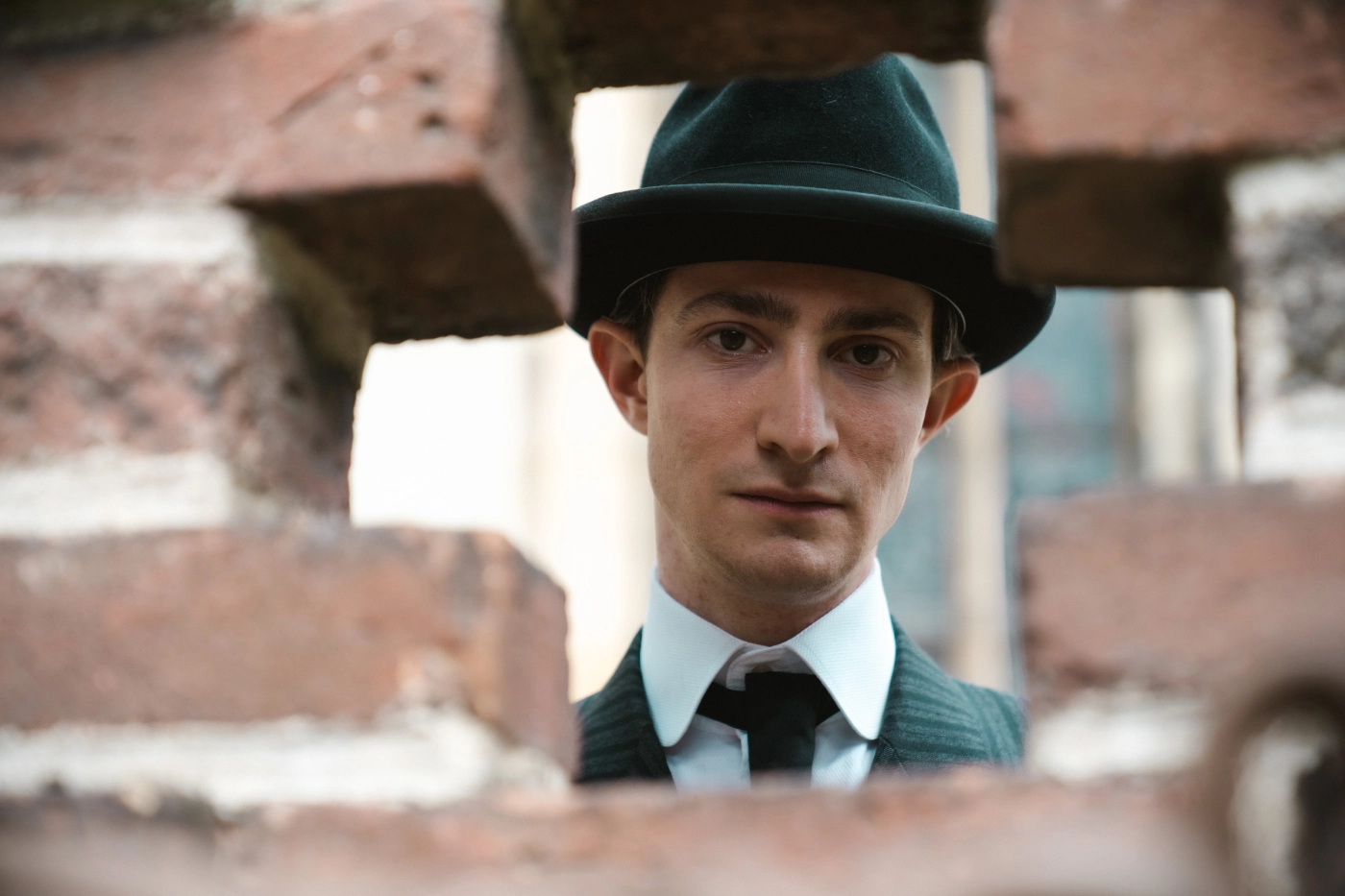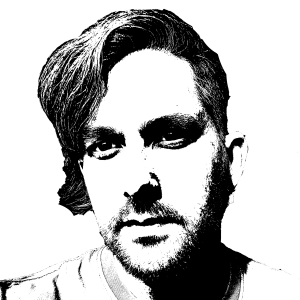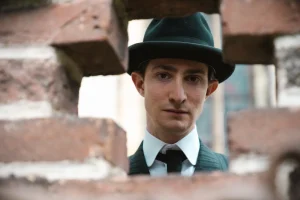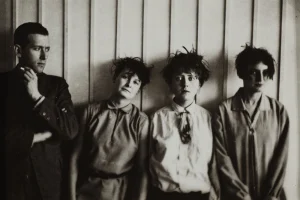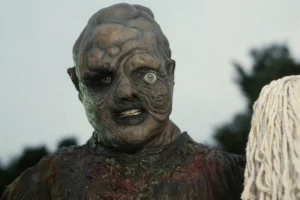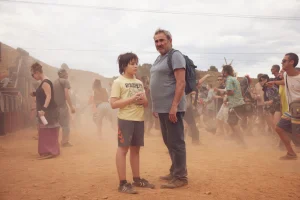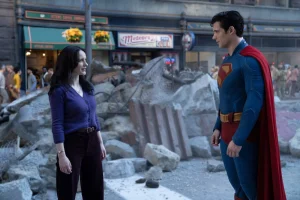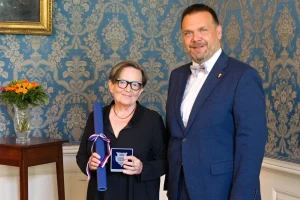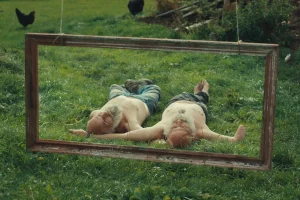Note: Franz is playing in both Czech-dubbed and original (Czech and German) versions in Prague cinemas; it can also be seen with English subtitles at selected screenings at Kino Světozor.
The life and legacy of Prague’s most famous resident is examined in Franz, which opens in Czech cinemas this weekend after premiering earlier this month at the Venice International Film Festival. This striking biopic from director Agnieszka Holland walks a tightrope between traditional genre tropes and Kafkaesque flights of fancy—and requires audiences coming in to the film to already be familiar with the author and his work—but wonderful production design, vibrant cinematography on the streets of Prague, and outstanding performances truly bring its subject to life.
The value of Franz as either a coherent biopic or standalone narrative feature is debatable, but there’s one thing the movie gets unquestionably right: its central portrait of the famed writer, so memorably portrayed by Idan Weiss that it is destined to become the definitive vision of Kafka for future generations.
Franz is not structured like a traditional biopic, but a fragmented kaleidoscope of scenes from Kafka’s life (sometimes presented out of order) along with sequences featuring supporting characters dissecting his character—both in the wake of his untimely death in 1924, as well as 100 years later, as a guide walks groups of disparate tourists through Prague locations that influenced his life, and those that now bear his legacy.
There’s a refreshingly playful feel to the contemporary scenes, which feature Emma Smetana as the tour guide. She narrates in multiple languages as she leads tours through Prague’s Kafka Museum and the real-life locations he lived, including a small house on the Golden Lane at Prague Castle and his family residence by Old Town Square. Of course, they also make a stop at the (fictional) Kafka Burger, where the guide receives a kickback as she chronicles famed vegetarian Franz Kafka’s favorite dish and its time-honored legacy in Prague.
In (and more recently after) Kafka’s time, a large percentage of Franz is dedicated to figures from his life—doctors, friends, and family members including an uncle Sebastian (Ivan Trojan)—attempting to explain Kafka’s existence as they go about their own lives. There’s a lot more telling than showing in these scenes, but sequences featuring Max Brod (Sebastian Schwarz) and Kafka’s sister Ottla (Katharina Stark) in Nazi-occupied Prague are particularly affecting. Brod would escape with Kafka’s unpublished manuscripts to Palestine, while Ottla would be murdered in Auschwitz.
Franz does everything it can to avoid becoming a traditional biopic—there’s also some interpretative dance, and a memorable depiction of the author’s In the Penal Colony featuring Josef Trojan as the traveler and Jan Budař as the officer—but Marek Epstein’s screenplay finds its surest footing while depicting key events of Kafka’s life, mostly during his relationship with Felice Bauer (Carol Schuler) from around 1912-1915.
It feels like it must pain the filmmakers to include scenes of Kafka’s mother (Sandra Korzeniak) bemoaning the deaths of Franz’s two older brothers (she comes dangerously close to the Dewey Cox ‘the wrong son died’ line), and his father (Peter Kurth) rejecting his literature ‘hobby’ with the zeal of the dad in The Jazz Singer (or, more pointedly, Weird: The Al Yankovic Story). But paradoxically, these are some of the strongest moments in the film—only within the life of Kafka could these stock tropes feel so earnest and heartfelt.
The relationship between Franz and his father Hermann, played with a frightening authority by Kurth, becomes the film’s emotional core. Hermann wants Franz to follow in his footsteps at the factory; “Asbestos!” his brother-in-law declares with the zeal of the plastics guy in The Graduate. Franz, meanwhile, is no rebel but does everything he can to earn his father’s respect, while maintaining fleeting hope that dad will someday recognize his worth as a writer.
In one of the film’s finest scenes, Hermann delivers some harsh criticism of Kafka’s latest novella. But Franz doesn’t care about that: “You read my work!” he exclaims with a smile. But then Holland rewinds the film, because of course that did not happen; Franz is destined to go through life without the admiration of his father, or anyone else, really—only in death will he achieve the love he so yearned for. Hermann’s final scene, paying off the landlord in Franz’s now-barren apartment, is especially affecting.
Franz soars almost any time that Weiss is on screen as the central character, a walking enigma who understands himself no better than the audience. The film is bookended by two Kafkaesque sequences—in the first, Franz demands change from a beggar, and in the second, he is taught the value of being succinct in his correspondence from a postal clerk—and Weiss is the note-perfect embodiment of a character who simultaneously can and cannot come to terms with the existential absurdities that surround him. It’s hard to imagine any other interpretation of this character.
The film’s striking production design—bursting with bright, vibrant sets and costumes that evoke Amadeus more than a typical early-20th-century period piece—lends it a sense of timelessness; central Prague, appearing as itself across more than a century, deepens that effect. A lively post-punk soundtrack, featuring original songs by the Polish indie band Trupa Trupa, further underscores Kafka’s transcendent appeal.
“The key to understanding Kafka has been buried alongside him,” one character puts it late in the film. Franz is an offbeat biopic that has decided that there’s little point in trying to comprehend its central character in conventional terms, and that’s not a standpoint that will appeal to all audiences (for those seeking a more coherent biopic, the 2024 miniseries Kafka did an admirable job). Instead, Franz is the cinematic equivalent of David Černý’s rotating Kafka head in downtown Prague; the story may not satisfy in the traditional terms, but the experience of watching it is memorable and rewarding just the same.

